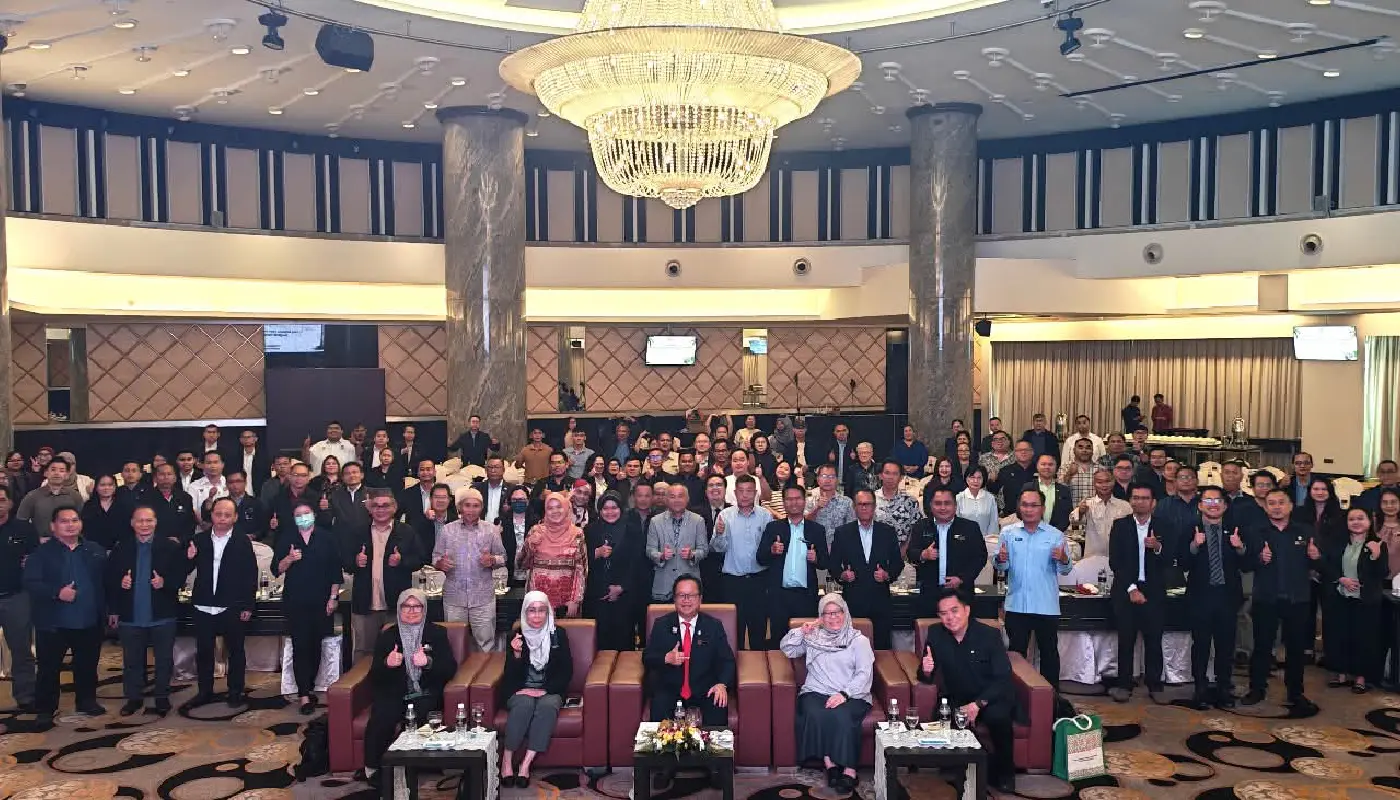KUCHING – The Department of Agriculture Sarawak has conducted a specialist seminar aimed at reinforcing the state’s coconut crop management, with a particular focus on biosecurity and importation protocols.
The event, titled ‘Strengthening Coconut Farming – From Importation to Farm Management’, served as a strategic platform to enhance expertise across the agricultural sector.
Organised by the department’s Plant Biosecurity and Quarantine Division, the programme sought to address the entire supply chain.
It covered critical areas including the legal importation process for plant materials, certification under the Plant Material Verification Scheme, modern agronomic practices, and the management of pests and diseases.
The seminar was officially opened by the Director of the Department of Agriculture Sarawak, Dominic Chunggat. His presence underscored the department’s institutional commitment to safeguarding this vital agricultural segment.
The initiative is a direct outcome of the Sarawak Host-Pest Information Development Project, which operates under international standards set by the World Trade Organisation’s Agreement on the Application of Sanitary and Phytosanitary Measures (WTO-SPS).
A primary goal of the project is to fortify Sarawak’s plant biosecurity defences.
This systematic approach is designed to significantly reduce the risk of introducing and spreading foreign pests, thereby ensuring the long-term sustainability of the state’s agriculture. Coconut crops have been identified as a main focus for this protective strategy.
The seminar had several key objectives. It aimed to provide clear exposure to the policies and procedures governing the importation of coconut planting materials.
Furthermore, it intended to boost participants’ knowledge on advanced agronomy, the threats posed by pests and diseases, and the integrated control measures available.
A strong emphasis was placed on the importance of using certified, quality planting materials to ensure farm productivity and resilience.
The event also functioned as a vital networking forum, creating a space for strategic cooperation between various stakeholders in the industry. This inclusive approach brought together 157 participants from a wide range of backgrounds.
Attendees included importers and exporters of coconut planting materials, entrepreneurs, individual growers, and manufacturers of coconut-based products.
The seminar also attracted researchers specialising in crops and plant pathologies, representatives from local higher education institutions, agricultural officers, and personnel from other related government agencies.
Coconut farming contributes to both local consumption and the regional economy in Sarawak. Enhancing its management is part of a broader state agenda to ensure food security and support agricultural entrepreneurs.
By integrating international best practices with local knowledge, the department aims to build a more robust and sustainable industry.
Such comprehensive training is seen as essential for pre-emptively managing threats like the coconut rhinoceros beetle or lethal yellowing disease, which have devastated crops in other regions.
Proactive education helps mitigate these risks before they can impact local farms and livelihoods.






